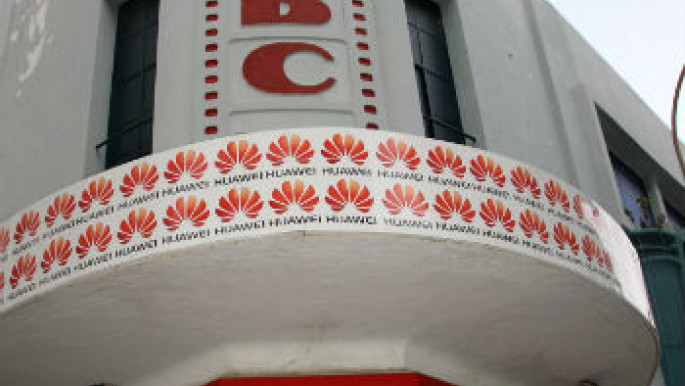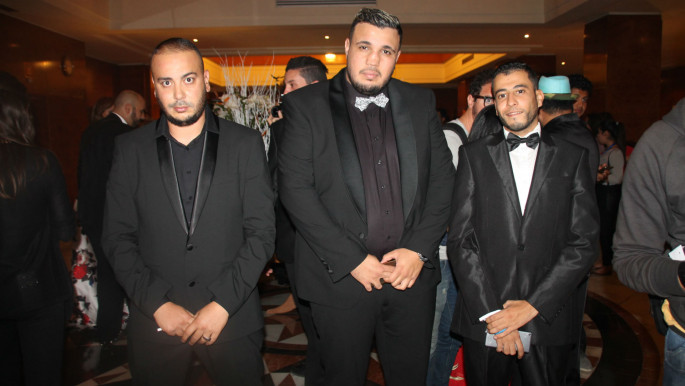
Remembering the revolution as curtain closes on Carthage festival
As my final descent into the world of Tunisian cinema begins in earnest, I spend my days at the palais du congres, a sprawling complex off Avenue Mohammed V, where the opening and closing ceremonies are held.
My daily walk there from the Majestic offers ten minutes of dusty faded glamour, colonial architecture, a retro yet still efficient streetcar system and old Jewish tailor shops. The same groups of young men hanging at cafes I remember from 1994 are still there, but they seem leaner, warier and unsmiling.
Tunisia through the lens of the festival represents both the hope and the despair of the Arab Spring - rollercoastering between depression and euphoria, sadness and delight. Cinema offers both relief and reflected reality.
I meet with Mokhtar Ladjemi whose 2015 Dicta Shot was a brave attempt at examining pre- and post-revolutionary violence and human rights abuses. It is set in a psychiatric hospital where the director locks the doors the night before the revolution, only to disappear and return with an Islamist-style beard.
 |
|
| Tunisia's cinema scene is thriving in the wake of the revolution [Hadani Ditmars] |
A few days later, the Tunisian Minister of Religious Affairs will be sacked for criticising Saudi Arabiaand its Wahhabism as a source of international terror. Riyadh last year pledged 600 million Tunisian dinars for development projects in Tunis.
In this year's festival Thala Mon Amour, by young first-time film maker Mehdi Hmili, proves an homage to the struggle of rural working-class Tunisia in the fight against the dictatorship. But this year's Demain Des L’aube by veteran theatre and film director Lofti Achour, is one of the first to examine pre- and post-revolutionary politics in depth.
Part road movie, part detective story, it reveals uncomfortable truths about the not-so-invisible ghosts of Ben Ali's dictatorship, ongoing violence, the new terror threat and economic crisis.
A powerful scene at the beginning sees the three lead characters dancing for joy at news that Ben Ali's government has been overthrown, only to retreat dramatically into a state of terror when a government sniper shoots a protester. It ends on an ambiguous note with the three young characters watching as dawn unfolds in Tunis, uncertain of the future.
Tellingly, there is a seminal scene that unfolds in a disco - an important cinematic and actual space it seems for Tunisia's youth - as the characters gyrate in a frenzy of freedom before falling into a bitter dispute about the night of January 14, 2011 - and its ongoing consequences. As Achour later relates, the film begs the question: "Are we going to continue the revolution we started in 2011, or abandon it?"
After ingesting so much Tunisian neo-realism, something magic happens on the way back to the Majestic one afternoon. The distance between the screen and the street seems to disappear completely. As I take in the scene with streetcars and sidewalk vendors, old hotels and young guys on mopeds, I feel as if I have entered into a Tunisian movie.
A dance at the disco that night with a handsome young Tunisian film-maker only intensifies the experience, but soon the romance will end. The next day, I take in Chouf, about the mean streets of Marseille and the young North African immigrants who face racism, police violence and drug gang warfare.
It is a sobering reminder of the reality many young Tunisians encounter when they emigrate - legally or otherwise - and face new challenges abroad. Tunisian director Karim Dridi cast all the actors locally, from the housing estates of Marseilles. The movie's star, Foued Nabba, won the coveted best actor award at the end of the festival.
I take a break from Tunisia for an afternoon of African cinema from Gabon - a restored version of Phillipe Mory's 1971 classic Les Tams- Tams Se Tuent (The Drums Fall Silent) about a village girl's "corruption" in the city. I buy a drink from a street vendor who tells me he comes, like many of Tunis' swelling population, from a village in the south.
 |
|
| The award-winning cast of Chouf [Hadani Ditmars] |
Then I take in Russian-influenced Syrian director Mohammad Malas' The Ladder of Damascus - about a group of young bohemians living in a house under siege and their efforts to escape war via their art.
I meet Mai Masri for the first time in two decades and talk about her film 3000 Nights, about a Palestinian woman who gives birth in an Israeli jail, a production that went on to win best screenplay.
But Tunisia will not let me go. That night I watch Ferid Boughedir’s Zizou, his classic film about the Forrest Gump-like villager who ends up becoming an unlikely revolutionary hero. The cinema is packed to the gills with adoring fans and afterwards I take photos of them as they spill into the street.
There are tanks outside - a reminder of the ongoing state of emergency - and I am stopped by an angry young soldier with a machine gun who wants to take my camera. As he turns to speak to his commanding officer he is swarmed by cinephiles and I make a break for the Hotel Africa, camera intact. I am now trapped inside a Tunisian film.
On the final day of the festival, the president of the republic - who recently sacked his prime minister and replaced him with a more compliant cousin - presents awards to various old-boy luminaries of African and Arab cinema. At the time of the ceremony, I happen to be swimming in the Mediterranean near his villa. The gorgeous azure waters feel oddly celluloid as cinema and landscape merge into a glorious conflation, and I snorkel past his "palace" like an aging Bond girl.
That night, in front of the Hotel Africa, gnawa musicians from the south perform, while "Miss Tunisia" swans around in an evening gown, and the star of the "Tunisian cowboy" series poses with a gun and a hat, all while veteran Palestinian actor Mohammed Bakri films it on his mobile phone. In its own way, the festival has been a kind of Sufi exercise in extremes.
Even though the head of the jury, Abderrahmane Sissako, criticised the festival's organisation, and the speech by Tunisian director Kaouthar Ben Henia - whose Zeineb déteste la neige won the best film award - was interrupted by a flash of paparazzi and bodyguards following Egyptian film star Adel Imam, chaos is a necessary part of the experience.
The fact that the Cecil B DeMille-style mega-festival that garnered an audience of 200,000 unfolded at all in a Tunisia gripped by post-revolutionary crisis is a minor miracle in itself. It was Big Night meets Battle of Algiers.
As I arrive back in freezing London wearing a traditional straw hat and poncho, feeling like a midnight Tunisian cowboy and reading about another IS-inspired attack, I think of all the young Tunisians for whom emigration is the only option. As memories of the festival reverberate through my being, I remain ambivalent about the success of the revolution, but enthusiastic about the power of Tunisian cinema. Vive l’Afrique and vive le cinema tunisien!
Follow Hadani Ditmars on Twitter: @HadaniDitmars





 Follow the Middle East's top stories in English at The New Arab on Google News
Follow the Middle East's top stories in English at The New Arab on Google News


